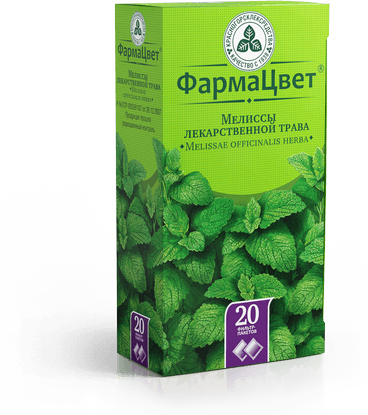Lemon Balm (Mеlissae officinalis herba)
$4.00 inc. VAT
Lemon Balm (Melissa officinalis), also known as Honey Plant and Cure-All, is a member of the mint family native to Europe and the Mediterranean that has been helping people for over 2,000 years.
It has always been used to treat wounds, ease indigestion and to stimulate the appetite, but the main purpose of this herb is to combat anxiety, stress and insomnia.
Homer made a reference to this in The Odyssey, and Culpeper praised the virtue of the plant as a sedative when he wrote that “it causeth the mind and heart to become merry… and driveth away all troublesome cares and thoughts out of the mind, arising from melancholy…”
So if you wish to ‘arise from melancholy’ as well- that’s the herb for you.
Therapeutic Properties of Lemon Balm
A wide range of therapeutic effects of Lemon balm is determined by its compounds:
- Essential oils: over 200 components, citronellal being responsible for a pronounced sedative effect and geraniol and citronellol for the antispasmodic properties. Neral and geraniol also produce the famous lemon scent;
- Phenylpropanoids are responsible for antiviral, immunomodulatory, antihistamine, antioxidant and antimicrobial properties of this plant.
- Vitamins: especially groups B, C and carotene, that have a direct impact on the body’s energy levels, brain function, development and repair of all body tissues;
- Minerals: potassium, magnesium, zinc, calcium, iron, as well as selenium, which helps treat Hashimoto’s thyroiditis, high cholesterol and even cancer.
Lemon balm is also known for its analgesic, anti-inflammatory, diuretic and diaphoretic effects. It is also a carminative that eliminates flatulence, relieves nausea and improves digestion.
It promotes the renewal of lymph and blood and helps with headaches.
Lemon balm is one of several plants which may be useful in the prevention and treatment of Alzheimer’s disease due to its ability to inhibit acetylcholinesterase and its antioxidant activity.
Storage and Handling
Store Lemon balm leaves in the original package, in a dry, dark place; store the boiled infusion in a cool place for no more than 2 days. Keep out of the reach of children!
Shelf Life
3 years. Do not use after expiration date.
Manufacturer/Claims:
JSC “Krasnogorskleksredstva”
Main Uses of Lemon Balm
Lemon balm is used in the treatment of the following conditions:
- Depression, anxiety, increased emotional excitability, irritability, sleep disturbances, neurosis and migraine;
- Heart disorders: arterial hypertension, tachycardia, tachyarrhythmias and mild forms of coronary heart disease;
- Digestive tract disorders: acute and chronic forms; dyskinesias, dysbacteriosis, fermentopathy and flatulence;
- Acute and chronic inflammatory diseases of the respiratory system;
- Skin disorders: eczema, dermatitis, trophic ulcers, as well as insect bites & stings (external use);
- Female reproductive system disorders: menopause, menstrual disorders & painful menstruation, pregnancy toxicosis, inflammatory diseases of the genitourinary sphere, especially diseases of the uterus.
Other Uses
Lemon balm for children
Few herbs are prescribed for children, especially at preschool and school age, but Lemon balm is one of them. It is used in the treatment of childhood neuroses, hypertension and rheumatism; for phytotherapy of children with heart defects, to treat chronic gastritis, cholecystitis, pyelonephritis, diabetes and obesity.
Lemon balm in cosmetology
According to the ancient Greeks, Lemon balm was the best remedy for baldness and to this time it is useful for men faced with this problem. Lemon balm is used by women to improve hair growth, strengthen the hair bulbs, restore damaged roots, regulate the sebaceous glands, reduce oiliness and smooth the hair along its entire length.
Lemon balm in dietotherapy
Useful properties of Lemon balm made it a means for losing weight. The tea with this herb will help improve the metabolism. Sedative and antispasmodic properties of Lemon balm will help to soothe the whetted appetite, reduce the level of anxiety & prevent the ‘stress-eating’, as well as relieve hunger cramps in the stomach. And diuretic, diaphoretic and mild laxative effects will only increase the weight-loss.
Contraindications
- Hypersensitivity to any Lemon balm component;
- Drowsiness;
- Low blood pressure;
- Gastric ulcers, duodenal ulcers or liver failure;
- Chronic alcoholism;
Side Effects
- Possible allergic reactions (to be safe, apply a little to your forearm and wait for 24 hours to see if any rash or irritation develops);
- Nausea, vomiting, abdominal pain, diarrhea (rare);
- Drowsiness, headaches, dizziness;
Special Instructions
Enhances the action of hypnotics and other drugs that depress the central nervous system.
Due to sedative effect may decrease psychomotor reactions: caution should be exercised when driving vehicles, working with mechanisms, etc.
Pregnant and breastfeeding women or children up to 12 years should not exceed dosage at any time to avoid side effects and health deterioration.
Before using, consult your doctor.
Dosage and Brewing Instructions
Place 2 filter bags (3.0 g) in a glass or enamel bowl, pour 200 ml (⅘ glass) of boiling water over the bags, cover and let steep for 15 minutes, periodically pressing the bags with a spoon, then squeeze the liquid out of them.
Drink 1/2-1/3 glass 2-3 times a day, 1 hour after meals. Shake the infusion up beforehand.
The course of treatment lasts for 3-4 weeks.


Reviews
There are no reviews yet.